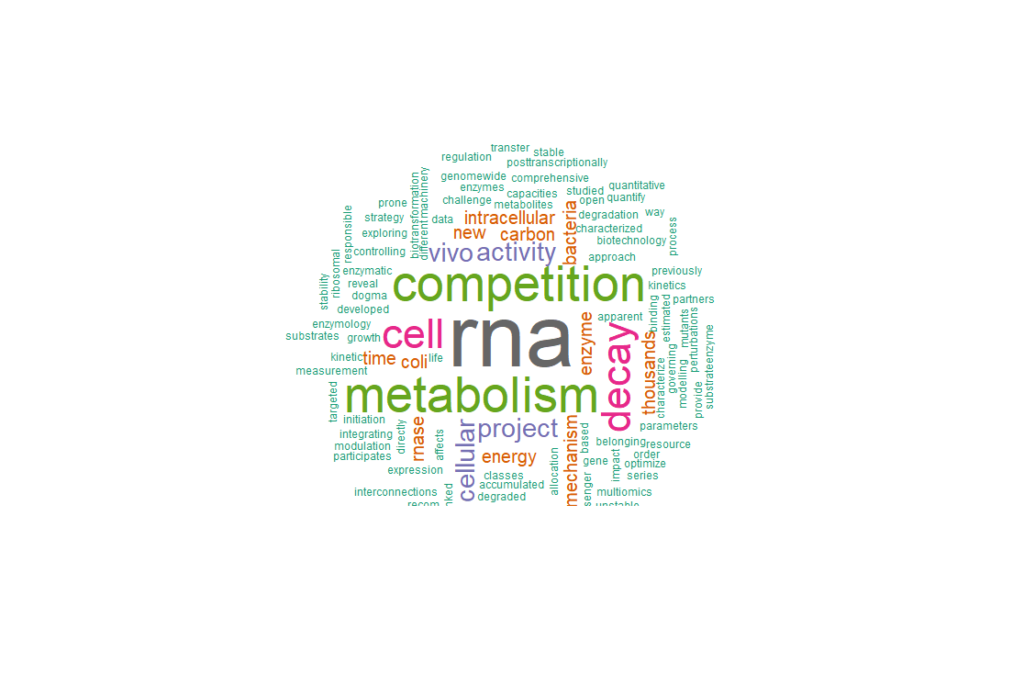Biotransformation capacities of cells are directly linked to cellular metabolism. The enzymatic process of RNA decay participates to metabolism regulation by controlling gene expression post-transcriptionally. Thousands of RNA molecules belonging to three classes (messenger, ribosomal and transfer RNAs) are prone to be degraded at the same time in cells and compete for enzymes of the degradation machinery. This competition mechanism and the impact of such competition on cell activity have not been previously studied. In the RECOM project, we will characterize for the first time the substrate/enzyme competition mechanism in vivo when thousands different RNAs compete for RNase E binding, the enzyme responsible for the initiation of RNA decay in E. coli.  An approach of in vivo enzymology will be developed. Perturbations of the two kinetics partners, the substrates or the enzyme, in the cells using a series of targeted mutants will be performed in vivo and apparent kinetic parameters of RNase E for all RNAs, will be estimated by modelling. By exploring genome-wide RNA stability, the project will challenge the dogma of stable and unstable RNAs. In order to quantify how the RNA competition for decay affects E. coli cell activity, energy and carbon metabolisms will be thoroughly characterized by the measurement of growth, accumulated metabolites and intracellular quantitative multi-omics data. The project will reveal the cellular trade-off for intracellular resource allocation between RNA decay, carbon and energy metabolisms and thus provide the first comprehensive view of bacterial metabolism integrating the interconnections between these three metabolisms. This new vision of the mechanisms governing bacterial life could also open the way to new strategies in biotechnology based on the modulation of RNA decay for cellular activity optimization.
An approach of in vivo enzymology will be developed. Perturbations of the two kinetics partners, the substrates or the enzyme, in the cells using a series of targeted mutants will be performed in vivo and apparent kinetic parameters of RNase E for all RNAs, will be estimated by modelling. By exploring genome-wide RNA stability, the project will challenge the dogma of stable and unstable RNAs. In order to quantify how the RNA competition for decay affects E. coli cell activity, energy and carbon metabolisms will be thoroughly characterized by the measurement of growth, accumulated metabolites and intracellular quantitative multi-omics data. The project will reveal the cellular trade-off for intracellular resource allocation between RNA decay, carbon and energy metabolisms and thus provide the first comprehensive view of bacterial metabolism integrating the interconnections between these three metabolisms. This new vision of the mechanisms governing bacterial life could also open the way to new strategies in biotechnology based on the modulation of RNA decay for cellular activity optimization.
Project duration: March 01, 2024 – February 28, 2028



